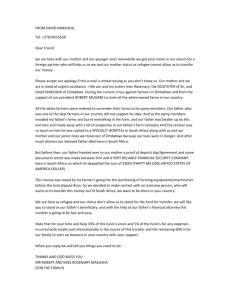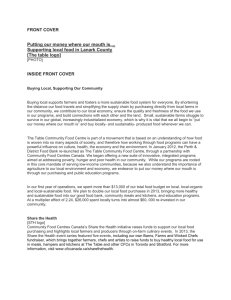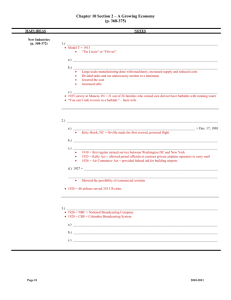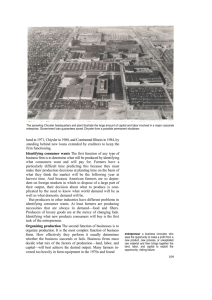Direct Marketing
advertisement
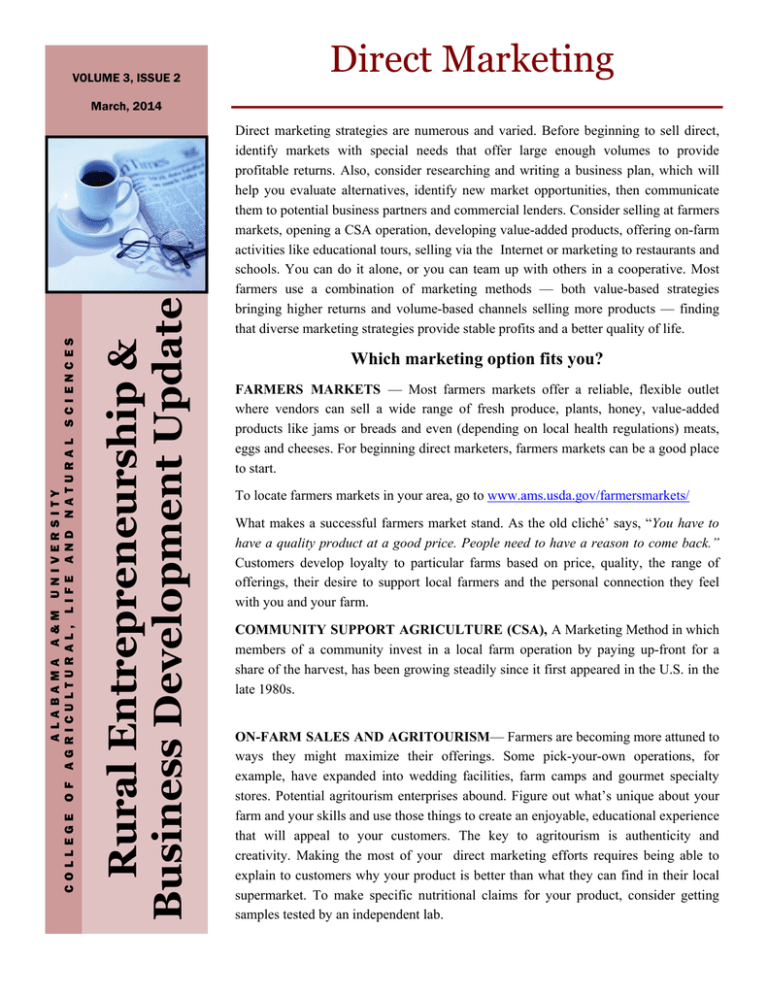
VOLUME 3, ISSUE 2 Direct Marketing Rural Entrepreneurship & Business Development Update ALABAMA A&M UNIVERSITY COLLEGE OF AGRICULTURAL, LIFE AND NATURAL SCIENCES March, 2014 Direct marketing strategies are numerous and varied. Before beginning to sell direct, identify markets with special needs that offer large enough volumes to provide profitable returns. Also, consider researching and writing a business plan, which will help you evaluate alternatives, identify new market opportunities, then communicate them to potential business partners and commercial lenders. Consider selling at farmers markets, opening a CSA operation, developing value-added products, offering on-farm activities like educational tours, selling via the Internet or marketing to restaurants and schools. You can do it alone, or you can team up with others in a cooperative. Most farmers use a combination of marketing methods — both value-based strategies bringing higher returns and volume-based channels selling more products — finding that diverse marketing strategies provide stable profits and a better quality of life. Which marketing option fits you? FARMERS MARKETS — Most farmers markets offer a reliable, flexible outlet where vendors can sell a wide range of fresh produce, plants, honey, value-added products like jams or breads and even (depending on local health regulations) meats, eggs and cheeses. For beginning direct marketers, farmers markets can be a good place to start. To locate farmers markets in your area, go to www.ams.usda.gov/farmersmarkets/ What makes a successful farmers market stand. As the old cliché’ says, “You have to have a quality product at a good price. People need to have a reason to come back.” Customers develop loyalty to particular farms based on price, quality, the range of offerings, their desire to support local farmers and the personal connection they feel with you and your farm. COMMUNITY SUPPORT AGRICULTURE (CSA), A Marketing Method in which members of a community invest in a local farm operation by paying up-front for a share of the harvest, has been growing steadily since it first appeared in the U.S. in the late 1980s. ON-FARM SALES AND AGRITOURISM— Farmers are becoming more attuned to ways they might maximize their offerings. Some pick-your-own operations, for example, have expanded into wedding facilities, farm camps and gourmet specialty stores. Potential agritourism enterprises abound. Figure out what’s unique about your farm and your skills and use those things to create an enjoyable, educational experience that will appeal to your customers. The key to agritourism is authenticity and creativity. Making the most of your direct marketing efforts requires being able to explain to customers why your product is better than what they can find in their local supermarket. To make specific nutritional claims for your product, consider getting samples tested by an independent lab. SALES TO RESTAURANTS & INSTITUTIONS— Chefs and restaurant patrons pay premium princes for top-quality, distinctive, locally grown products. The challenge often lies in getting farmer-chef relationships established. In some areas, organized sampling events have brought farmers and chefs together to talk about seasonal availability, preferred crops and varieties, volume, post-harvest handling and delivery logistics. The chains of the different marketing methods Small Farms Research Center, Alabama A&M University 4900 Meridian Street James I. Dawson Building, Room 219 Normal, AL 35762 Small Farms Research Center Background. The Small Farms Research Center was developed to assist small farmers with limited resources in Alabama’s underserved communities. The center was first developed in 2000 to assist minorities, especially women, African Americans and underserved individuals improve their farm management practices, given ones condition and resources. The mission of the Center and the Small Farmers Outreach program is to assist all small and limited resources farms effectively deal with risk management and food safety issues and provide them with informational sessions. The Center has also expanded its outreach efforts to meet the needs of entrepreneurs and businessman. The center is located at Alabama A&M University in the Dawson Building. The center specializes in following areas Marketing and Business Plans -Record keeping and Loan Application -Identify alternative enterprises -Personal Management -Legal Issues -Finances -International Business and Procurement -Accounting Issues -Taxes -Business Development -Conducting seminars on Government programs and other issues For more information about us give us a call at (256) 372-4970 and 1-866-858-4970. Website: www.aamu.edu/smallfarmers


